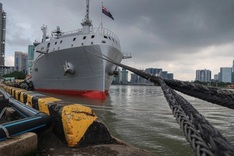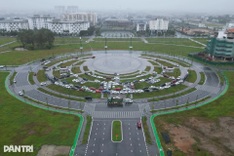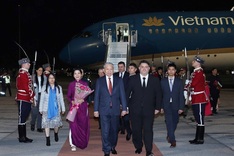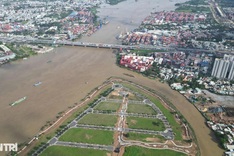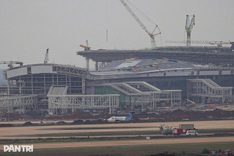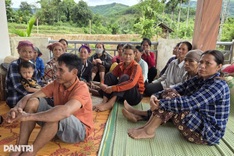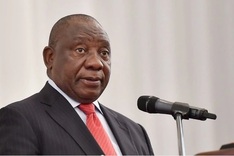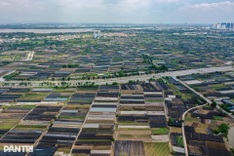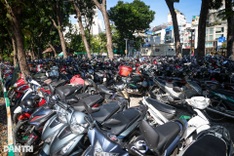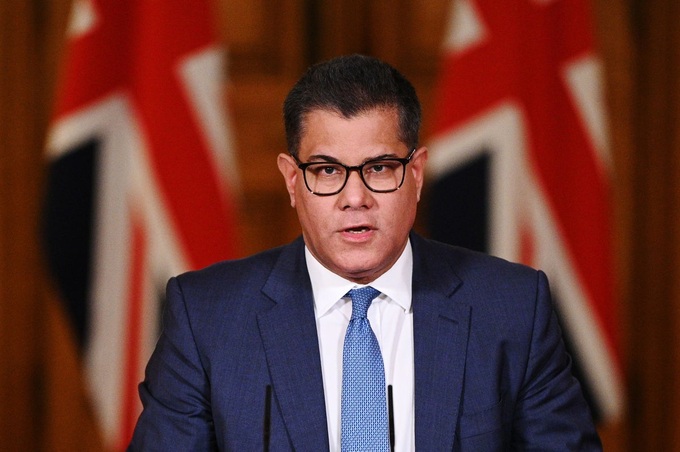
COP26 President-Designate Alok Sharma
Every fraction of a degree makes a difference. An average global temperature rise of two degrees, compared to 1.5, would see hundreds of millions more people affected, and twice as many plant and three times as many insect species losing vast swathes of their habitat. We know that climate change is already damaging the livelihoods of millions in the Mekong Delta region of Viet Nam.
However, since the 1.5 degree target was set, the world has not done nearly enough and our planet is heating up. In my role as COP26 President Designate, I have witnessed the impact first hand: melting glaciers, crop degradation, villagers forced from their homes. If we continue as we are, these effects will get worse, and fast.
The Climate Action Tracker estimates that if countries keep to their emissions reduction targets, we are now on course for average temperature rises of 2.4 degrees. This is progress on their estimates this time last year. But there is much further to go; to limit warming to 1.5 degrees, we must halve global emissions by 2030. So this is the decisive decade.
We must act now, to launch a consistent and concerted effort to reduce emissions throughout the next ten years. And use the COVID-19 recovery to reimagine our economies, building a better future, one with green jobs and cleaner air, increasing prosperity without harming the planet.
This is what makes the next United Nations climate conference in Glasgow, COP26, so critical. It must be the moment where every country, and every part of society, embraces their responsibility, to protect our precious planet, and keep the 1.5 degree target alive. And we have a clear plan to get there.
First, we must put the world on a path to driving down emissions, until they reach net zero by the middle of this century. This is imperative to keeping 1.5 degrees within reach. So we need countries to come forward with clear targets to reduce emissions. This means near term 2030 emissions reductions targets consistent with net zero by the middle of the century. And these targets must be based on the science, so that net zero is not just a vague aspiration, but a concrete plan. I hope that Viet Nam can raise its ambition and announce a peak date for emissions before Glasgow.
We also need to see action in the most polluting sectors. If we are serious about 1.5 degrees, Glasgow must be the COP that consigns coal power to history, calls time on deforestation and signals the end of polluting vehicles. So we are working with governments and through international organisations to end international coal financing, a personal priority of mine. We are urging countries to abandon coal power, and we are working with developing countries to support their transition to clean energy.
We are seeing real progress. The G7 Climate and Environment Ministers’ meeting I recently co-chaired, committed G7 nations to transition away from dirty coal domestically and end all new direct government support for international coal power by the end of 2021. In Viet Nam the potential for renewable energy, both solar and wind, offers a realistic alternative to building new coal fired power, and a way to keep attracting high tech investment.
Our second goal is to protect people and nature from the worst effects of climate change. The climate crisis is already with us and we must act on the very real need for flood defences, warning systems and other vital efforts to minimise, avert and address the loss and damage caused by climate change. I know how the extreme weather in Central Viet Nam last year caused devastating floods, and we must help communities to increase the resilience of their housing and infrastructure.
Our third goal is finance, without which the task ahead is near impossible. Developed countries must deliver the $100bn a year they promised to support developing countries. The UK is leading by example, having committed £11.6bn between 2021 and 2025. And we need all developed countries to step up. It is a matter of trust.
We must also make finance easier to access and increase the sums available to protect people and nature. In March, I brought together Ministers from 50 governments and international institutions to address these issues, and we are focused on delivering the commitments made at that meeting.
Fourth, we must work together to deliver on these goals. That includes building consensus among governments, so the negotiations in Glasgow are a success. As well as bringing businesses and civil society on board behind our COP26 goals, and building up international collaboration in critical sectors. That is the purpose of my talks with the Viet Namese Government this week.
I call on all countries, including Viet Nam, to step up efforts on these goals, because COP26 is our last hope of keeping 1.5 degrees alive, our best chance of building a brighter future; a future of green jobs and cleaner air.
This is our moment. There are no second chances. Let’s seize it together.


